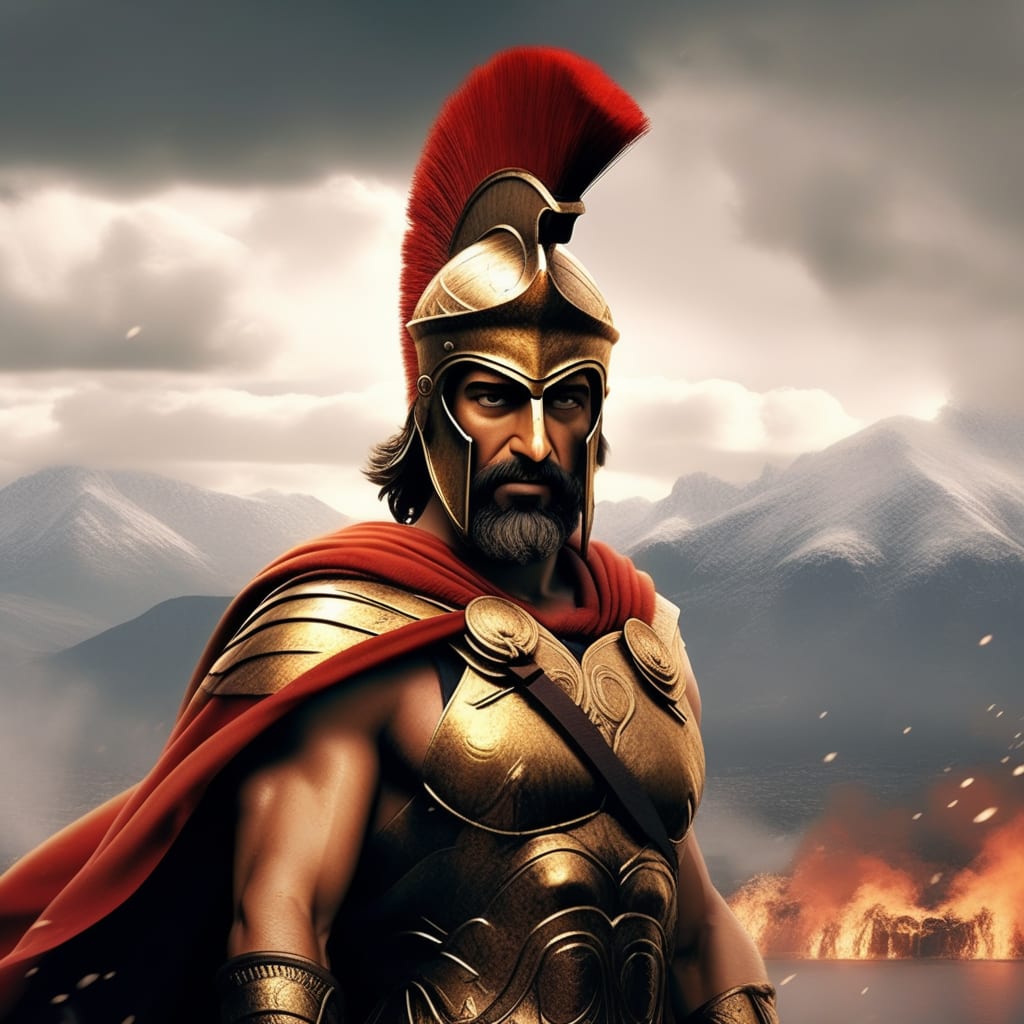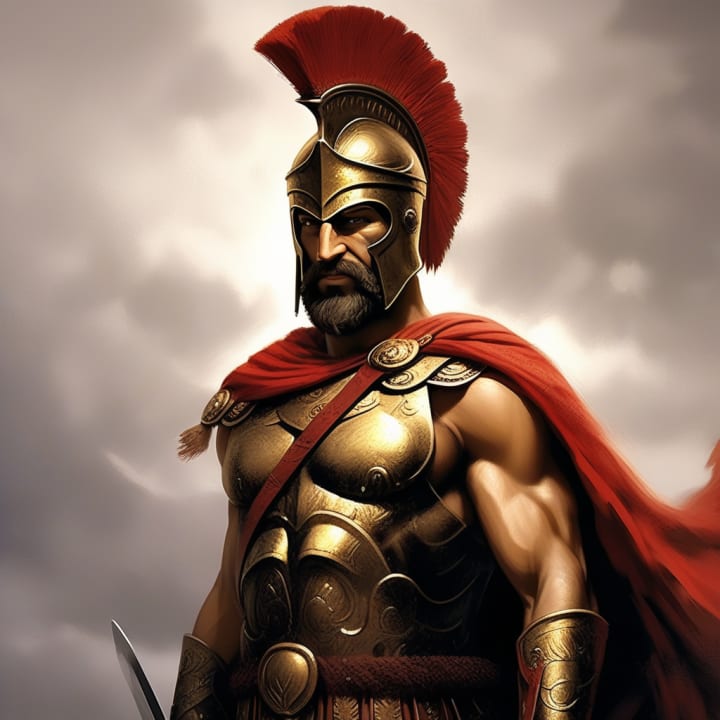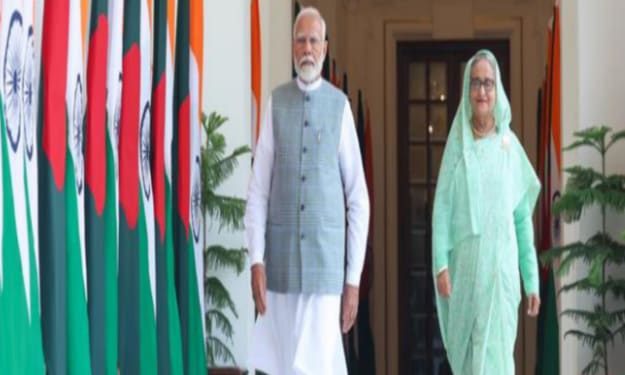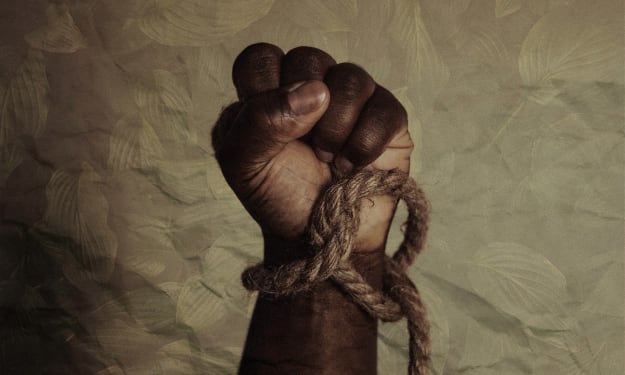King Leonidas of Sparta
King Leonidas of Sparta, famed for leading the 300 Spartans at the Battle of Thermopylae against the Persian army.

King Leonidas stood at the narrow pass of Thermopylae, his 300 Spartans by his side, their bronze shields gleaming in the relentless Greek sun. The Persian army, an overwhelming force led by King Xerxes, approached with a dark and ominous determination.
As the dust settled, Leonidas tightened the grip on his spear, his eyes fixed on the approaching enemy. The hot breeze carried whispers of the impending clash, a clash that would echo through the ages.
Leonidas, born into the warrior society of ancient Sparta, had been groomed for leadership since his youth. Trained in the art of war, he embodied the virtues of discipline, courage, and loyalty. As the king of Sparta, he faced a grave threat – the mighty Persian Empire, whose shadow stretched across continents.
Rumors of Xerxes' colossal army had reached the Greek city-states, igniting fear and uncertainty. The Oracle of Delphi had foreseen doom, but Leonidas, unyielding in his commitment to defend Greece, set forth with his select group of warriors to confront the Persian invasion.
The pass of Thermopylae, a natural chokepoint between the mountains and the sea, provided a strategic advantage for the Greeks. Leonidas, aware of the terrain's significance, chose it as the battleground. The Spartan phalanx, a formation perfected through years of training, stood as an impenetrable barrier.
As the Persian army approached, Xerxes, perched upon his golden throne, observed the seemingly meager Greek force with disdain. He believed that the Spartans, vastly outnumbered, would crumble before the might of his empire.
The clash began like thunder, the clash of two civilizations colliding on the dusty battlefield. Persian arrows darkened the sky, yet the Spartans, their shields interlocked, formed an unyielding shield wall. Wave after wave of Persian soldiers crashed against the Spartan phalanx, only to be repelled with deadly efficiency.
Leonidas fought at the forefront, his spear a deadly extension of his will. His eyes, focused and unyielding, scanned the battlefield for any weakness in the Persian onslaught. The battlefield echoed with the clash of bronze against bronze, a symphony of war that reverberated through the mountains.
As the sun dipped below the horizon, the Persians, frustrated by the unwavering Spartan defense, withdrew to regroup. Leonidas, however, knew that this respite was temporary. He convened with his fellow commanders, including the wise and stoic Dienekes, to discuss the unfolding battle.
"We stand against an ocean of foes," Dienekes spoke, his gaze fixed on the distant Persian campfires. "But the resolve of a Spartan is forged in the fires of adversity. We are the shield that guards Greece."
Leonidas nodded, acknowledging the truth in Dienekes' words. The fate of Greece rested on their shoulders, and the Spartan king was determined to face whatever destiny had in store.
As the night unfolded, a lone figure emerged from the shadows. Ephialtes, a hunchbacked Spartan rejected from the ranks, sought an audience with Leonidas. Desperation etched on his face, he offered his knowledge of a hidden mountain path that could outflank the Spartan position.
Leonidas, ever vigilant, listened to Ephialtes but recognized the danger in trusting a man who had been shunned by their society. With a heavy heart, he thanked Ephialtes for the information but explained that only true Spartans could stand with them in the face of impending battle.
As dawn painted the sky in hues of orange and red, the Persian onslaught resumed with renewed vigor. Xerxes, determined to crush the Spartan resistance, unleashed his elite Immortals. Leonidas, aware of the impending danger, positioned his Spartans to face this formidable force.
The Immortals, clad in golden armor, clashed with the Spartans in a fierce and bloody confrontation. The phalanx held its ground, but the sheer number of Immortals threatened to overwhelm them. Leonidas, a beacon of unwavering strength, fought alongside his men, each swing of his spear a testament to the resilience of Sparta.
In the midst of the chaos, Dienekes fell, his last words a rallying cry for the Spartans to hold the line. The death of the seasoned warrior fueled the resolve of his comrades, who fought with even greater determination.
Ephialtes, watching from the shadows, witnessed the sacrifice of the Spartans. Consumed by guilt and a desire for redemption, he resolved to join the battle, fighting against the Persians who had exploited his information.
The battle raged on, and the pass of Thermopylae became a graveyard for countless warriors. The Greeks, though vastly outnumbered, fought with a tenacity that defied the odds. Leonidas, wounded but resolute, stood as a symbol of Spartan defiance against tyranny.
As the day wore on, whispers of Ephialtes' betrayal reached Xerxes. Intrigued by the prospect of victory, the Persian king personally led his elite guard to exploit the hidden path. The Spartans, caught off guard by the unexpected betrayal, found themselves surrounded.

Leonidas, his warriors exhausted but unbroken, faced Xerxes in a final confrontation. The Persian king, towering over the wounded Spartan, offered clemency if Leonidas would kneel and submit.
In the face of certain death, Leonidas stood tall, his bloodied spear raised defiantly. "This is Sparta!" he roared, embodying the spirit of a nation unwilling to yield to oppression.
Xerxes, angered by the Spartan king's refusal to bow, struck him down with a single swing of his sword. The lifeless body of Leonidas lay among his fallen comrades, a testament to the price of defiance.
The Battle of Thermopylae, a monumental clash between East and West, became etched in history. Though the Greeks ultimately faced defeat, the sacrifice of Leonidas and his Spartans inspired a spirit of resistance that would shape the destiny of Greece.
Ephialtes, having redeemed himself in the eyes of his people, disappeared into obscurity. The memory of Thermopylae, however, endured as a symbol of courage against overwhelming odds. The tale of King Leonidas and the 300 Spartans became a beacon of inspiration for generations to come, a reminder that even in the face of certain doom, the spirit of freedom and defiance could never be extinguished.
About the Creator
Enjoyed the story? Support the Creator.
Subscribe for free to receive all their stories in your feed. You could also pledge your support or give them a one-off tip, letting them know you appreciate their work.






Comments
There are no comments for this story
Be the first to respond and start the conversation.